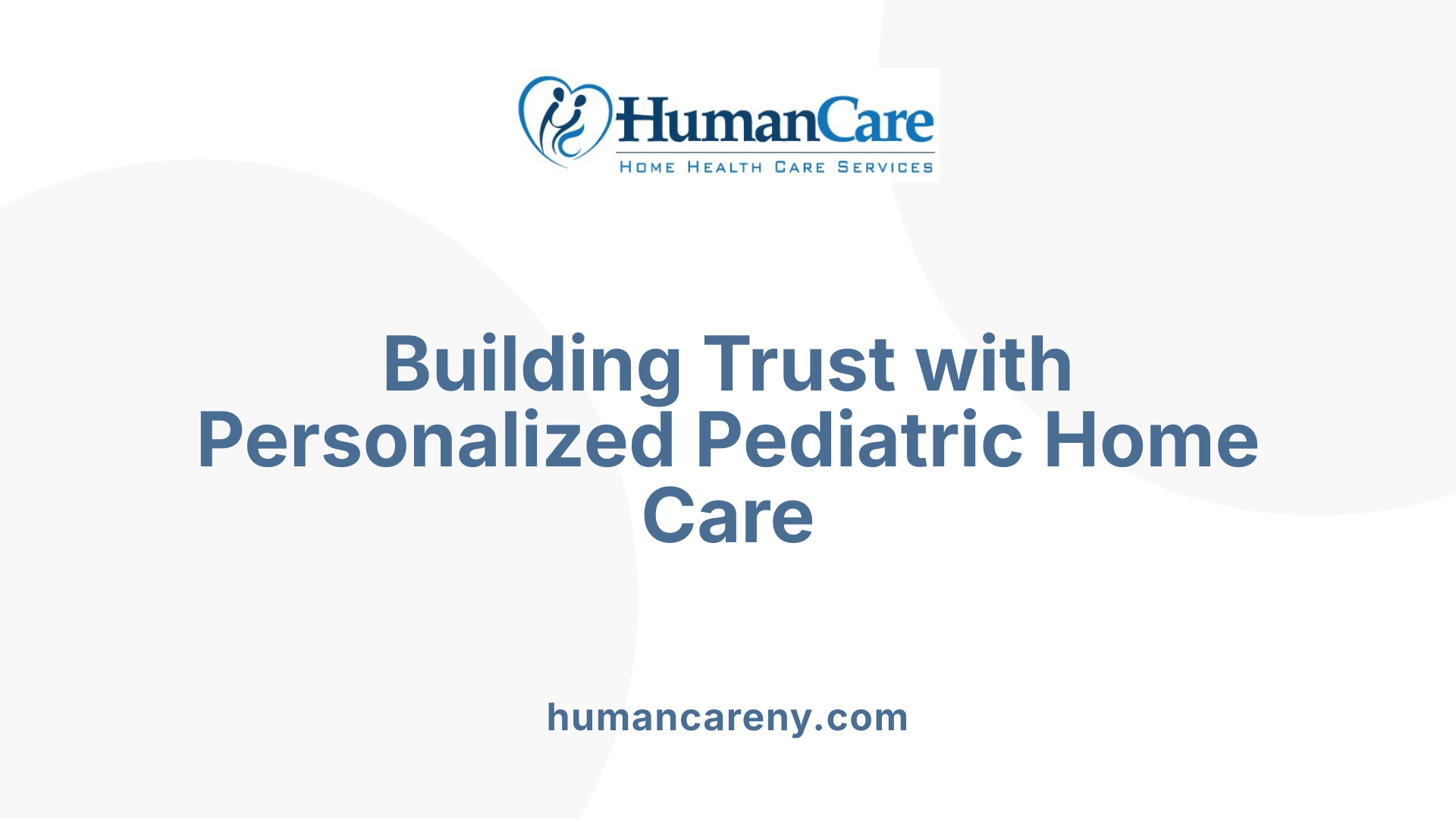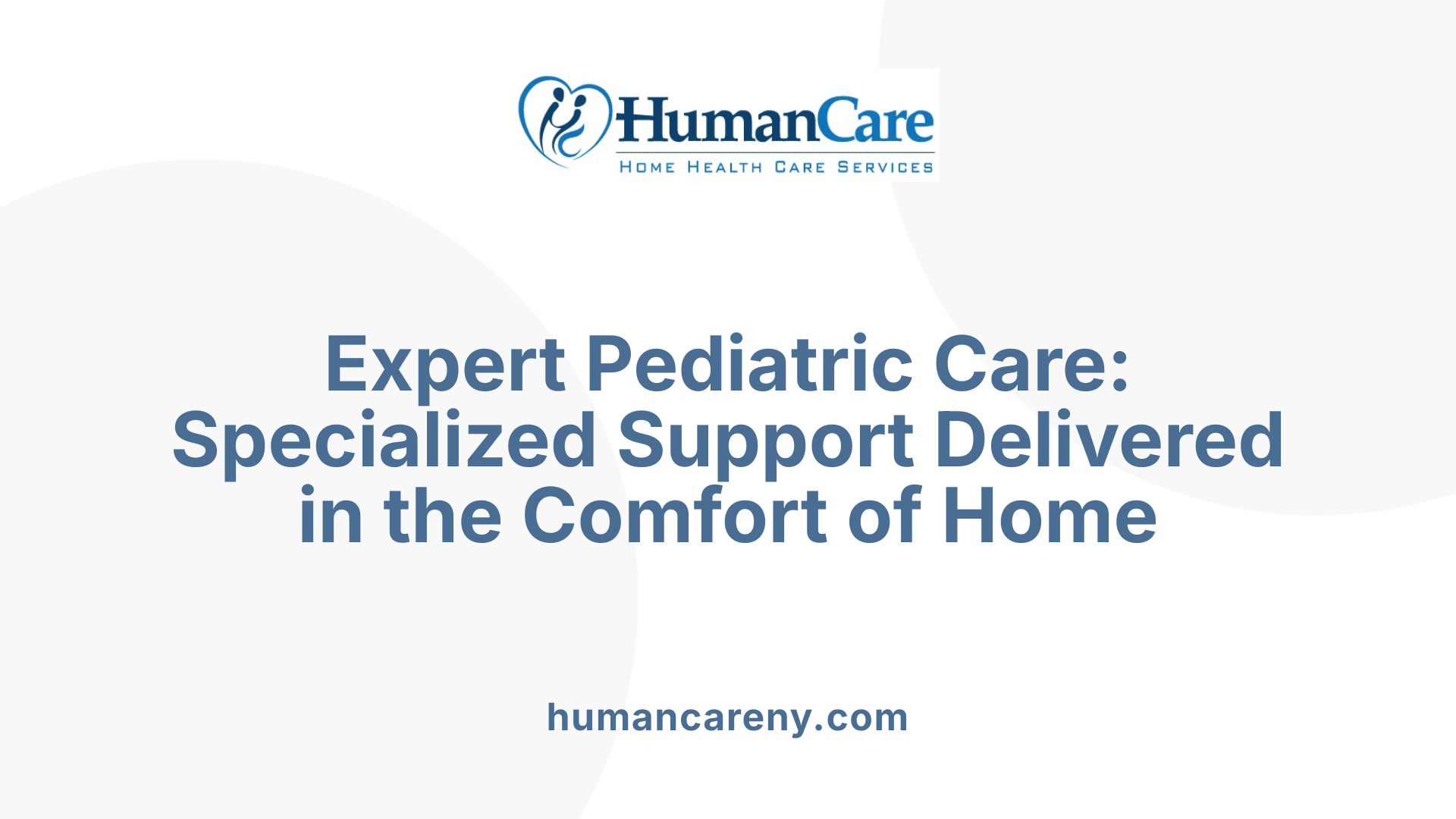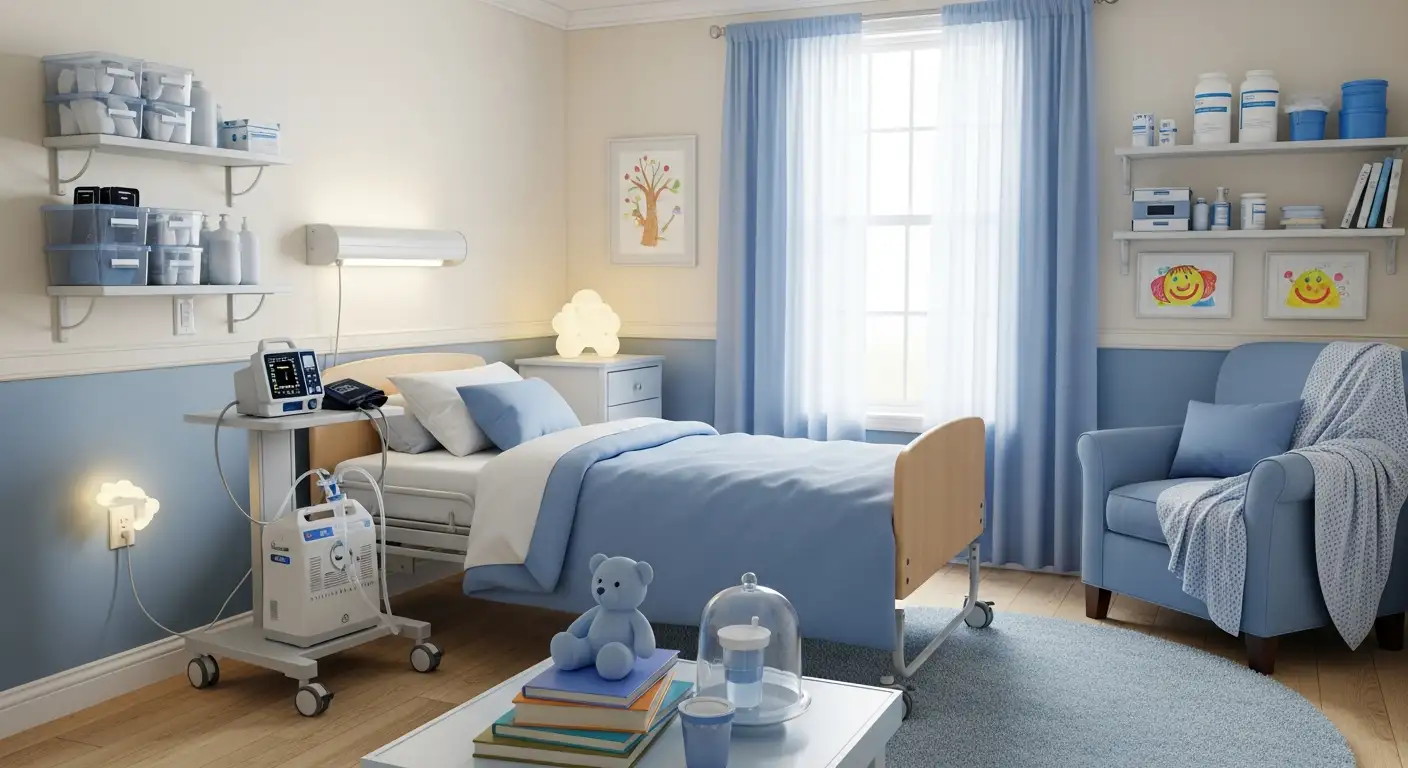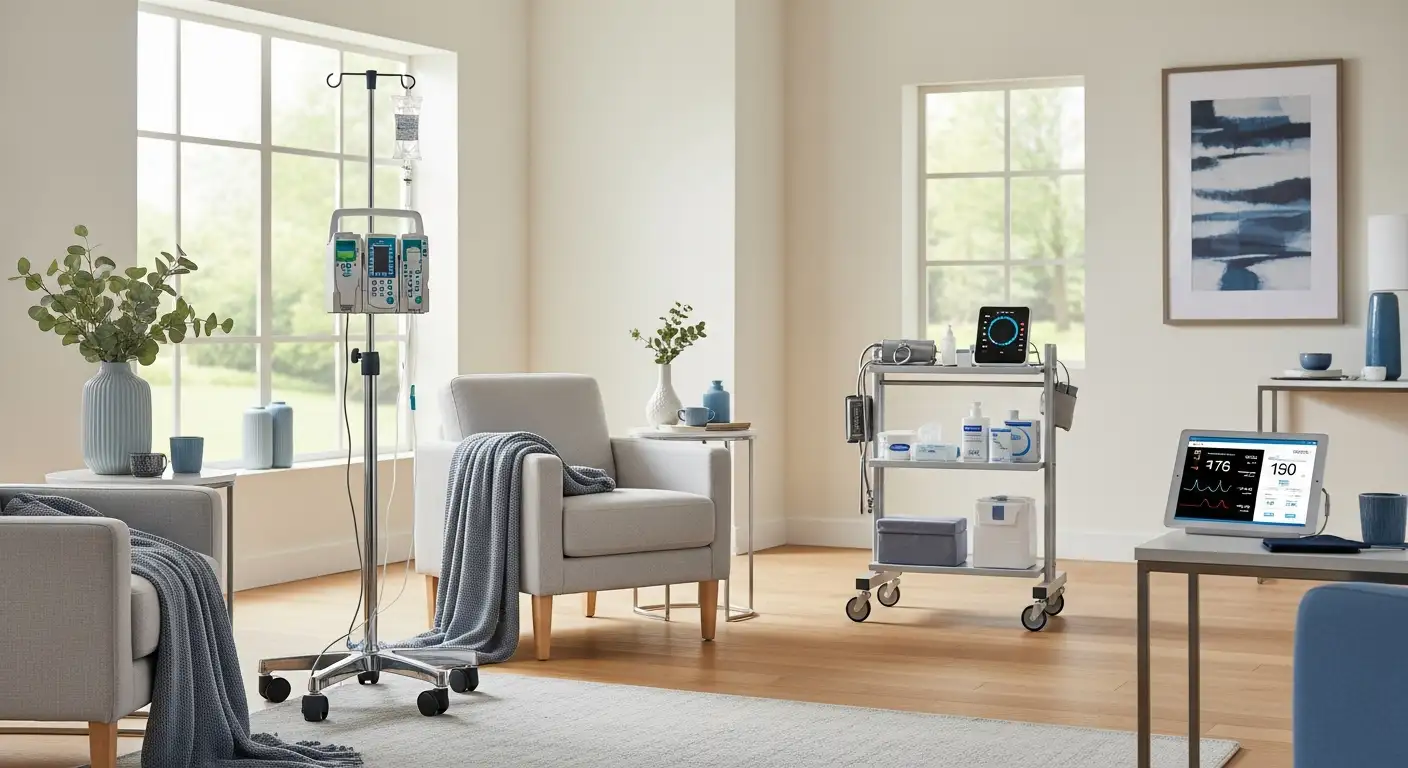Bringing Care Home: A New Era for Children and Families
Pediatric home care services are revolutionizing the healthcare landscape for medically fragile children and their families. By providing personalized, consistent, and comprehensive medical support in the comfort of the home, these services not only improve health outcomes but also significantly enhance family well-being. This article explores the multifaceted positive impacts of pediatric home care, from emotional reassurance and reduced family stress to cost savings and better management of complex medical needs.
Enhancing Quality of Life Through Familiar Environments and Emotional Support

How does receiving care in a home environment affect the child's emotional well-being?
Receiving pediatric care within the home instead of a hospital setting profoundly benefits a child's emotional health. Being surrounded by familiar sights, sounds, and routines helps reduce the stress and anxiety commonly linked to hospital visits. Children experience greater emotional comfort, which supports quicker recovery and stable health outcomes.
Home care also allows children to maintain their daily routines and continue participating in social and community activities. This exposure nurtures emotional resilience and promotes social development, key aspects of overall well-being.
What emotional benefits do families experience with pediatric home care?
Families gain significant emotional relief when their child receives care at home. The comfort of a safe, nurturing environment eases parental concerns, offering peace of mind even when they cannot be present at all times. This reassurance reduces stress and builds stronger family bonds.
Additionally, maintaining normal daily routines through home care fosters a sense of stability for the entire family. Parents feel empowered by being actively involved in their child's care, improving caregiver confidence and satisfaction.
In essence, pediatric home health services deliver not just medical treatment but also crucial emotional support that benefits children and families alike.
Personalized and Consistent Care: Building Trust and Improving Outcomes

Personalized Care Plans Enhance Treatment Effectiveness
Home health services create care plans tailored specifically to each child's unique medical requirements. This individualization ensures that treatments address the child's precise needs, promoting better health results and comfort.
Continuity of Care Builds Strong Relationships
Having consistent healthcare providers fosters trust and a reliable bond between the child and nurse. These ongoing relationships help improve communication, allowing caregivers and healthcare professionals to better understand and respond to the child's evolving condition.
Meaningful Bonds Between Nurses and Children
Pediatric homecare nurses develop close, one-on-one connections with their young patients. Such relationships provide emotional support and stability, which are crucial for children managing chronic or complex health issues.
Regular Monitoring Enables Early Intervention
Continuous health assessments in the home setting allow early detection of potential complications. This proactive approach helps prevent emergencies and reduces hospital visits by addressing issues before they escalate.
Personalized and continuous care in pediatric home health services combines customized treatment, trusted relationships, emotional support, and vigilant monitoring, all of which contribute to improved treatment outcomes and overall well-being for children and their families.
Supporting Families: Reducing Caregiver Stress and Empowering Participation

How do pediatric home care services support and empower family caregivers?
Pediatric home care plays a crucial role in alleviating the burdens that families face when caring for medically fragile children. These services reduce caregiver stress and burnout by taking on complex medical responsibilities such as managing ventilator dependence, TPN, NG, and G-feeds, which can be physically and emotionally demanding for families.
Respite care services offer essential relief by allowing primary caregivers time to rest and recharge while ensuring their children receive professional and compassionate care. This support is invaluable for maintaining the well-being of both the child and family.
In addition, home care encourages active family involvement in the child's treatment plan. This participation empowers caregivers by giving them a sense of control and partnership in managing their child's health, which also strengthens family bonds.
Flexible scheduling and the convenience of receiving care at home make it easier for families to accommodate treatment alongside daily routines. This adaptability helps families maintain a semblance of normalcy and reduces the disruption caused by frequent hospital visits or appointments.
Through these supportive measures, pediatric home care fosters a nurturing environment that benefits the entire family unit, promoting emotional resilience and effective health outcomes.
Cost-Effectiveness and Efficient Management of Complex Medical Needs
What financial and practical advantages does pediatric home care provide to families?
Pediatric home care offers significant financial benefits by reducing the frequency of hospital admissions and emergency visits. Through proactive management of health conditions, children receive consistent care at home that helps prevent complications and avoid costly inpatient services. This results in considerable cost savings for families compared to extended hospital stays.
Furthermore, trained pediatric nurses and healthcare providers expertly manage complex medical equipment and procedures such as intravenous therapy, tracheostomy care, ventilator dependence, and feeding tubes. This specialized support ensures children's medical needs are met safely and effectively within the comfort of their own homes.
Advanced technologies like telehealth and remote monitoring complement in-home care by facilitating virtual consultations and continuous health surveillance. These innovations increase access to specialized services without the logistical challenges of travel, offering both convenience and enhanced medical oversight.
In summary, pediatric home care combines personalized, skilled medical attention with efficient use of technology to deliver cost-effective, quality healthcare. Families benefit from reduced financial burdens, minimized hospital stays, and comprehensive management of complex medical needs in a familiar, supportive setting.
Comprehensive, Specialized Care Delivered by Trained Professionals

Who provides pediatric home care and what specialized services are offered?
Pediatric home care is provided by qualified interdisciplinary teams that include experienced nurses, social workers, and therapists. These professionals bring specialized skills to care for medically fragile children in the comfort of their own homes.
Advanced medical interventions offered at home include IV therapy, tracheostomy care, medication administration, and support for complex medical needs such as ventilator dependence and post-surgical recovery. This level of care allows children to avoid frequent hospital visits and manage chronic conditions more effectively.
Specialized programs cater to children with developmental challenges such as autism, cerebral palsy, and spina bifida, ensuring personalized support that addresses their unique needs. Additionally, respite care services provide caregivers with necessary breaks while maintaining consistent professional care.
Continuous training and education through preceptor programs enable pediatric home care nurses to develop essential competencies for high-quality care delivery. This education supports their ability to manage emergencies, adapt individualized care plans, and work independently, sustaining rich one-on-one patient relationships.
Demand for pediatric home health nurses is growing rapidly, with a projected employment increase of 33% between 2020 and 2030. This rise reflects greater recognition of the importance of specialized, home-based pediatric healthcare and the benefits it brings to children and families.
| Provider Role | Specialized Services Offered | Training and Growth |
|---|---|---|
| Pediatric Nurses | IV therapy, tracheostomy care, medication administration, ventilator support, emergency management | Preceptor programs, ongoing education, 33% projected job growth (2020–2030) |
| Social Workers & Therapists | Developmental support for autism, cerebral palsy, spina bifida; respite care | Interdisciplinary collaboration and specialized certifications |
This comprehensive approach ensures children receive focused, compassionate care tailored to their medical and developmental needs, all within their home environment.
A Transformative Approach to Pediatric Care and Family Well-being
Pediatric home care services offer a comprehensive approach that transcends traditional healthcare by merging clinical excellence with emotional and practical family support. By delivering personalized, consistent, and specialized care in the home, these services mitigate stress, empower families, reduce costs, and improve health outcomes for children with complex medical needs. The growing recognition and investment in pediatric home care mark a hopeful transformation in how healthcare systems support children and their families, embodying compassion, convenience, and efficiency all under one roof—their home.



